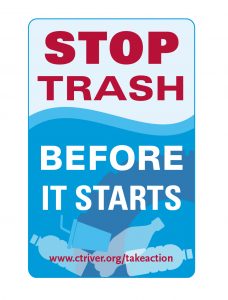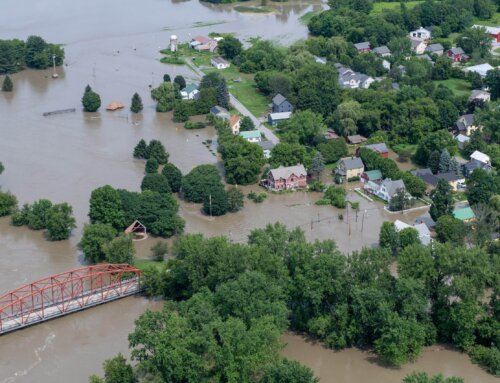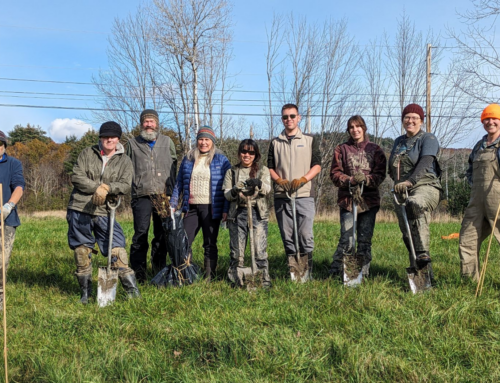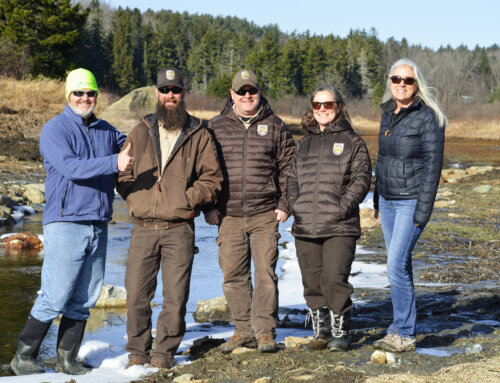
Greenfield, MA – The Connecticut River Conservancy (CRC) and the Charles River Watershed Association (CRWA), two national leaders in the effort to clean up the nation’s rivers, today called on Massachusetts lawmakers to take legislative action on reducing trash before it reaches our rivers.
The two organizations pointed to a number of bills currently working their way through the Massachusetts State House that would, if approved, go a long way to reduce or eliminate trash that might otherwise end up in the state’s waterways. The proposed legislation includes measures to eliminate single-use plastic bags, restrict single-use plastic straws, and eliminate foam from food containers.
“For years, thousands of volunteers from these two organizations have been doing their part to keep our rivers clean,” notes CRC Cleanup Coordinator Stacey Lennard. “Now we want decision-makers at the state level to do their part in helping redesign our economy so there isn’t waste in the first place.”
“With environmental regulations being rolled back weekly at the federal level, it is more important than ever that we have strong protections for our waterways at both the state and the local levels. We need your help to make sure that happens,” said Emily Norton, CRWA’s Executive Director.
CRC and CRWA also called on the public to join them in urging legislators to do their part by:
- Signing CRC’s petition telling manufacturers, businesses, and local government to lead the way on overhauling how we make and use plastic—and other waste products—and to take greater responsibility in solving the trash crisis. Visit ctriver.org/takeaction.
- Joining CRC and CRWA at Lobby for your Rivers Day on March 28 to receive training in how to talk to your elected officials about better pollution policies. Visit bit.ly/LobbyForRivers to sign up.
- Joining the 23rd Annual Source to Sea Cleanup on September 27-28 along the Connecticut River and tributary streams across the four-state watershed (NH, VT, MA, CT). Visit ctriver.org/cleanup to learn more.
- Participating in the 20th Annual Earth Day Charles River Cleanup on Saturday, April 27 from 9 am – 12 pm. It is co-hosted with the Charles River Conservancy, Charles River Esplanade, Emerald Necklace Conservancy, Massachusetts DCR, Waltham Land Trust, and Senator William Brownsberger. www.crwa.org/cleanup
CRC and CRWA have long been leaders in waterway cleanups, focusing on the Connecticut and Charles Rivers, and recently received national recognition for their 2018 cleanup efforts from American Rivers’ National River Cleanup®, a national organization that has removed over 25 million pounds of trash from America’s waterways.
Last year, CRC’s Source to Sea Cleanup received honorable mentions for the Most River Miles Cleaned, 174 miles across four states; Most Volunteers Mobilized, 2,853 participants; and Most Pounds of Trash Collected, 92,000 pounds. This is the second consecutive year of American Rivers recognition for CRC.
CRWA’s Earth Day Charles River Cleanup resulted in the Most Pounds of Trash Collected in the country, its volunteers picked up 100,000 lbs. It was also awarded honorable mention for Most Volunteers Mobilized with 3,500 participants. This is the third consecutive year American Rivers has recognized CRWA.
While national recognition usually constitutes remarkable success, here it highlights a larger problem: trashed rivers. River health has improved in the decades since the passage of the Clean Water Act in 1972. However, thousands of pounds of trash in rivers across our state is still an issue that causes significant damage and harm. The U.S. Environmental Protection Agency estimates that plastic marine debris adversely affects at least 267 animal species globally, including 86% of sea turtles, 44% of seabirds, and 43% of marine mammals. Cleaning local rivers has a global impact by reducing the amount of trash that flows into oceans.
###
Since 1952, Connecticut River Conservancy has been the voice for the Connecticut River watershed, from source to sea. They collaborate with partners across four states to protect and advocate for your rivers and educate and engage communities. CRC brings people together to prevent pollution, improve habitat, and promote enjoyment of your river and its tributary streams. Healthy rivers support healthy economies. To learn more about CRC, or to join the effort and help protect our rivers, visit ctriver.org.
Charles River Watershed Association uses science, advocacy, urban design and education to promote resilient communities and a healthy river ecosystem. CRWA was formed in 1965 in response to public concern about the declining condition of the Charles River. Since its earliest days of advocacy, CRWA has figured prominently in major clean-up and watershed protection efforts that have dramatically improved the health of the Charles.







